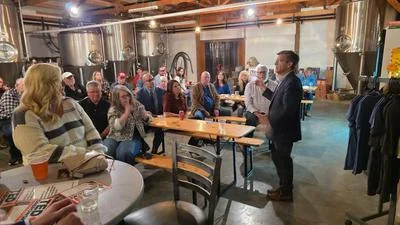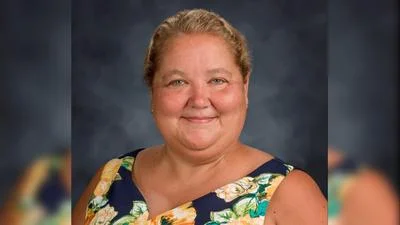Two choral ensembles from the University of Illinois Urbana-Champaign School of Music will sing an oratorio that is rarely performed in the U.S. The Oratorio Society and the Chamber Singers will perform “A Child of Our Time” with the Champaign-Urbana Symphony Orchestra on March 5 at Krannert Center for the Performing Arts.
“A Child of Our Time,” written by British composer Michael Tippett at the start of World War II, is based on the 1938 events of Kristallnacht, when the Nazis destroyed Jewish businesses, homes and synagogues in Germany. The oratorio includes five African American spirituals that express the movement from oppression to hope and reconciliation.
“With those five anchoring spirituals, the music story comes to a stop and it’s as if the whole world sings in response to what’s going on,” said Andrew Megill, the director of choral activities for the School of Music, who said he has wanted to perform the work for 30 years after discovering it as an undergraduate student.
The oratorio is a difficult work that is performed more in the U.K. than the U.S., Megill said. He guessed that few, if any, of the orchestra musicians will have performed it before, and it’s likely that no audience members will have heard it performed live.
“I’ve never seen how an audience responds to it. My guess is this will be a deeply emotional performance for everyone in the room,” Megill said.
“A Child of Our Time” was Tippett’s first major work as a composer, rooted in the baroque oratorial tradition and strongly influenced by Handel’s “Messiah” and Bach’s “Passions,” Megill said. In “Passions,” the storytelling of the opera would periodically stop and a choir would sing a familiar hymn that helped the audience put the story into the context of their lives, he said.
“One of the genius things about the Tippett oratorio was that he clearly wanted to find a cognate for that in 20th-century terms. Lutheran hymns wouldn’t do it,” Megill said.
Tippett chose the spirituals, including “Deep River,” which is sung in the final movement.
The core message of the oratorio is that evil is made possible by rejecting people who are different and diminishing their humanity, he said.
“(Tippett) isn’t interested in demonizing the perpetrators of Kristallnacht but in making us realize we could be on either side of that divide. We are those evil people in another circumstance. It’s closer to us than we think,” Megill said.
The soloists in the piece play specific roles. The tenor is the young Polish man who escaped the Warsaw ghettos and was trying to obtain papers to free his family when, in his frustration over the German bureaucracy that made obtaining the papers impossible, he shot a clerk, setting off the events of Kristallnacht. At the moment of his greatest frustration, the choirs sing the spiritual “Go Down Moses.”
Choir members play various characters, including the mob in a very difficult movement, “The Terror,” that depicts Kristallnacht, Megill said. They also sing the roles of sympathetic characters and self-righteous citizens, and they act as a Greek chorus, setting the scene for each movement.
Tippett was well-known for opera because he wrote so well for voice, Megill said. “He has a fantastic gift for beautiful, long-spun melody in the more lyrical parts of the piece,” he said.
The soloists who will perform with the choirs are soprano Laquita Mitchell, an opera singer and former student of Megill who has sung “A Child of Our Time” previously; alto Meg Bragle, a friend of Megill who has performed with him many times; Grammy-nominated tenor Brian Giebler; and bass Marques Jerrell Ruff, a former member of the Grammy Award-winning ensemble Chanticleer.
The Champaign-Urbana Symphony Orchestra, conducted by Stephen Alltop, will open the concert with two pieces written by Black composers Jesse Montgomery and William Grant Still.




 Alerts Sign-up
Alerts Sign-up